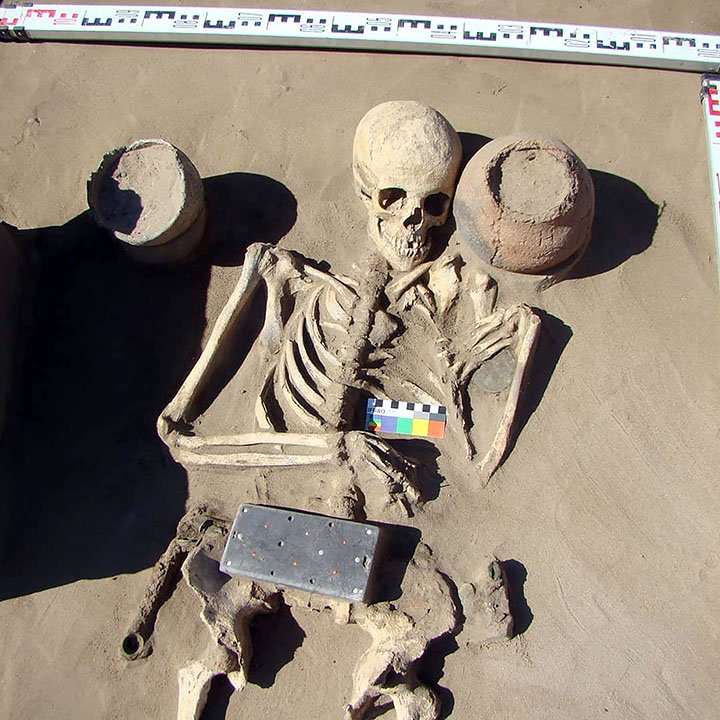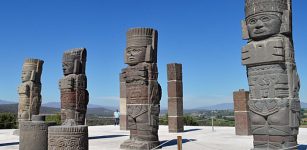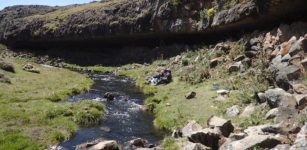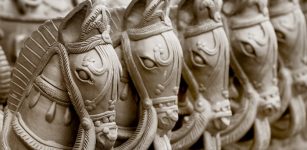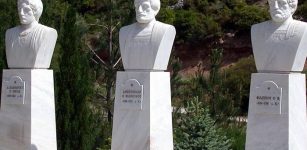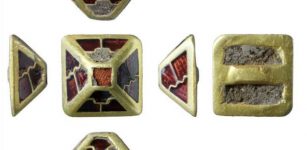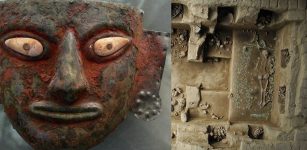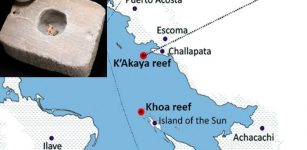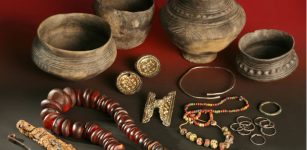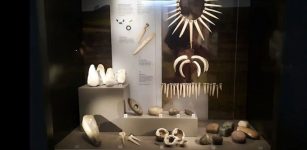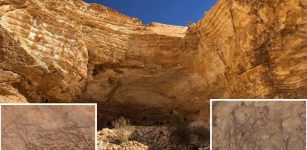Ancient ‘iPhone-Like’ Artifact Discovered At The Russian Atlantis
Conny Waters - AncientPages.com - It may look like an iPhone, but this artifact is not a modern invention. The 2,500-year-old black rectangular object was found in a woman grave at a site nicknamed the Russian Atlantis.
Burial AT 1/29 and a stunning find which archeologists jokingly named 'Natasha's iPhone'. Picture: HMC RAS/Pavel Leus
Crafted from dark-grey gemstone, with colorful decorations of turquoise, carnelian, and mother-of-pearl, the object 18cm by 9cm was actually a buckle on a belt.
Located in the mountainous Republic of Tuva, the Russian Atlantis appears from underwater for a few weeks a year.
'This site is a scientific sensation', said Dr Marina Kilunovskaya from the St Petersburg Institute of Material History Culture, who leads the Tuva Archeological Expedition.
This is a giant manmade reservoir on the Yenisei River upstream of the Sayano-Shushenskaya Dam, Russia’s biggest power plant.
The water drains in May and June each year exposing the vast desert-like floor.
See also:
Mysterious Megaliths Of Russia May Offer Evidence Of An Ancient Advanced Lost Civilization
Crimean Atlantis: Remarkable Ancient Underwater City Of Akra
Hyperborea Or Atlantis Ruins – Underground Secrets Of The Sacred Lake On The Arctic Circle
The coins discovered in the grave helped scientists to determine the age of the ‘iPhone-like’ artifact.
When archaeologists made this discovery, they jokingly nicknamed the ancient female Natasha, while her accessory was called ‘an iPhone’.
'‘Natasha’s’ burial with a Xiongnu-era iPhone remains one of the most interesting at this burial site,' Pavel Leus said in a new publication summarizing results of several years of recent archeological expeditions to the Ala-Tey burial site.
Siberian Times reports, “graves have been found here dating from the Bronze Age to the time of Genghis Khan. Earlier two partly-mummified prehistoric fashionistas, buried with the tools of their trade were unearthed.
Image credit: HMC RAS/Pavel Leus
One called ‘Sleeping Beauty’ - dressed in silk for the afterlife - was at first believed to be a priestess. Now she is thought to have been a leather designer.
The second was a weaver laid to rest with her wooden spindle packed inside a sewing bag. As many as 110 burials appeared on an island in the reservoir at Ala-Tey site.”
It’s a very rewarding site to work on because the ancient graves have not been looted.
Written by Conny Waters - AncientPages.com Staff Writer


